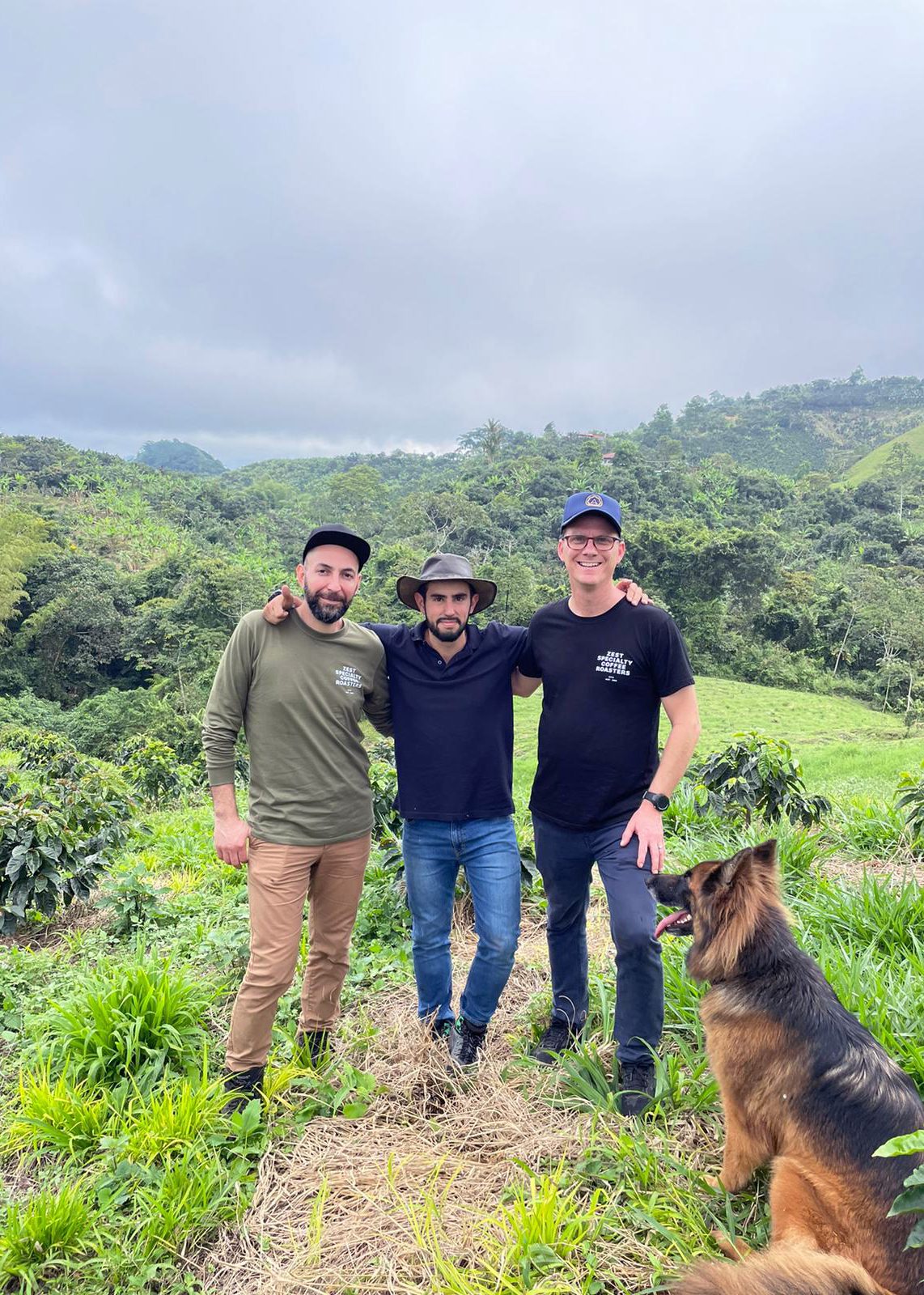

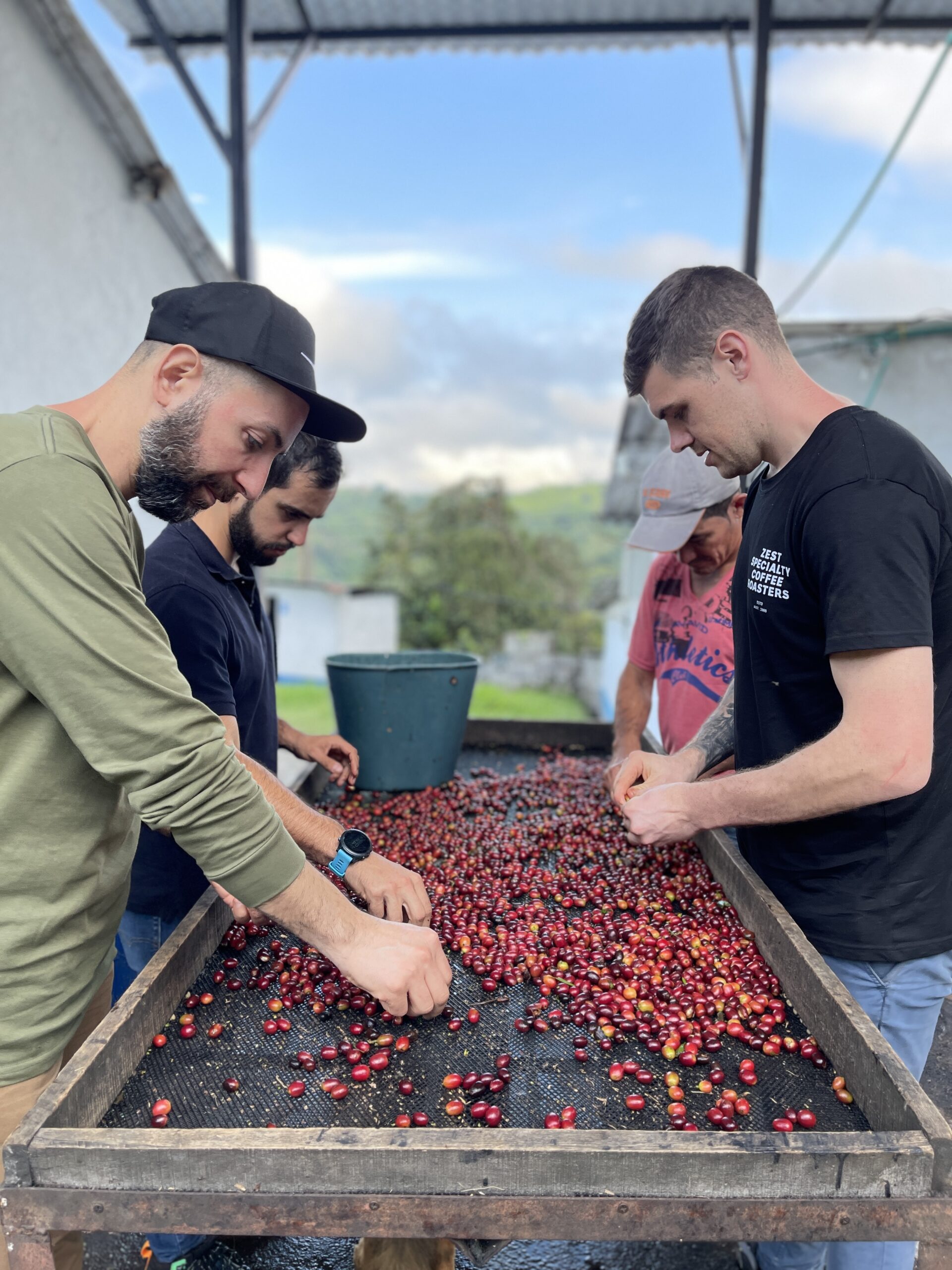

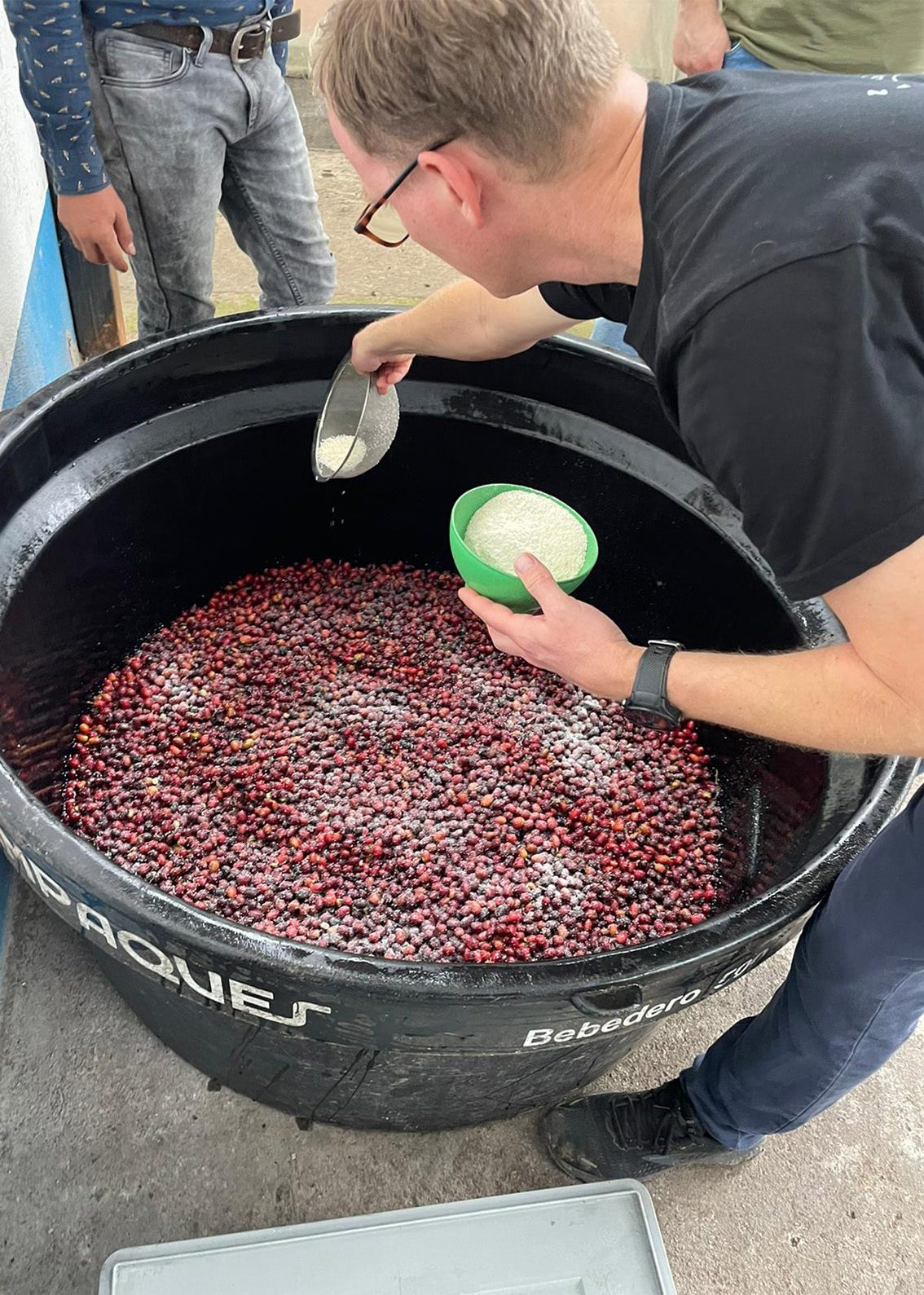

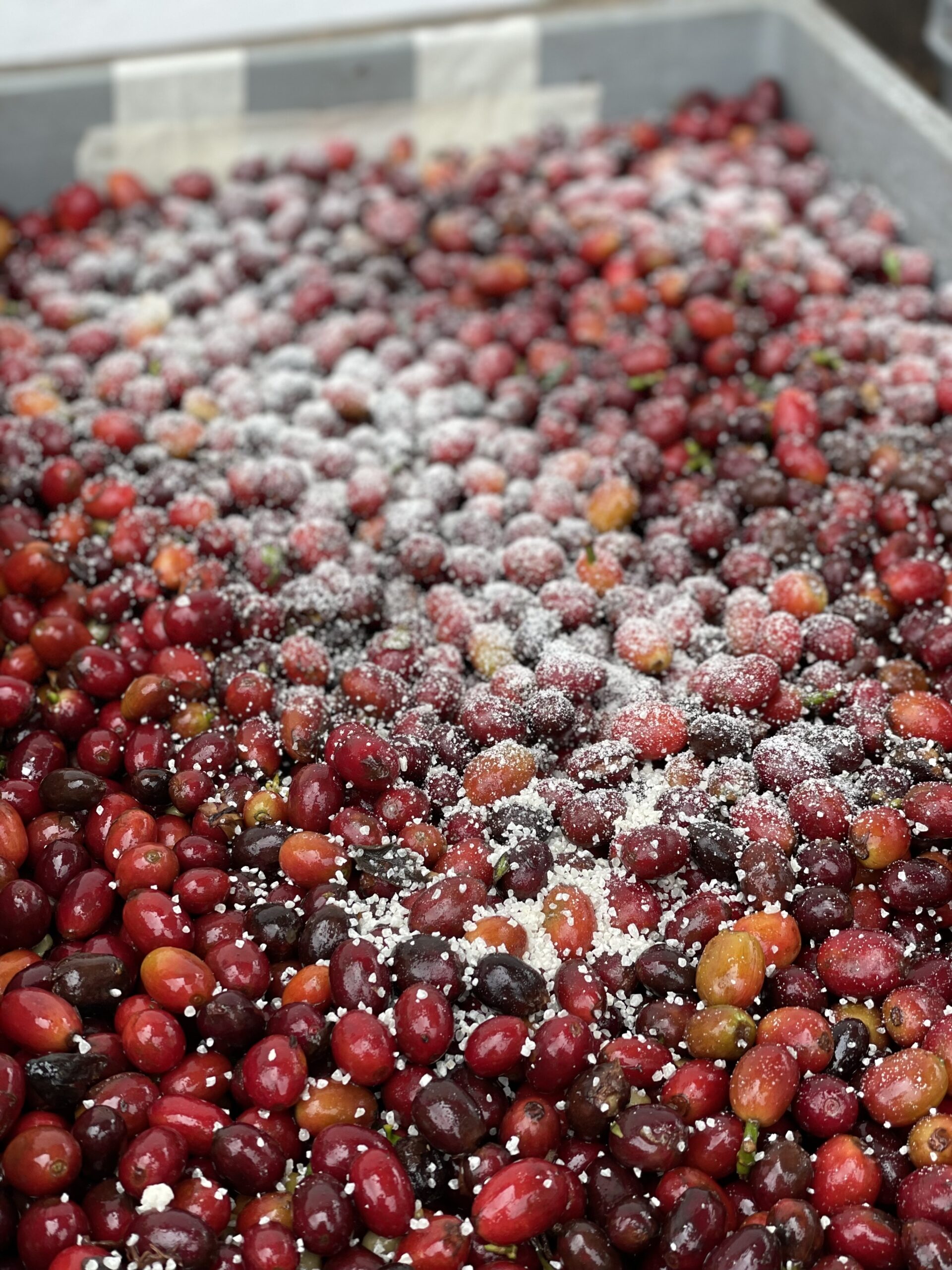

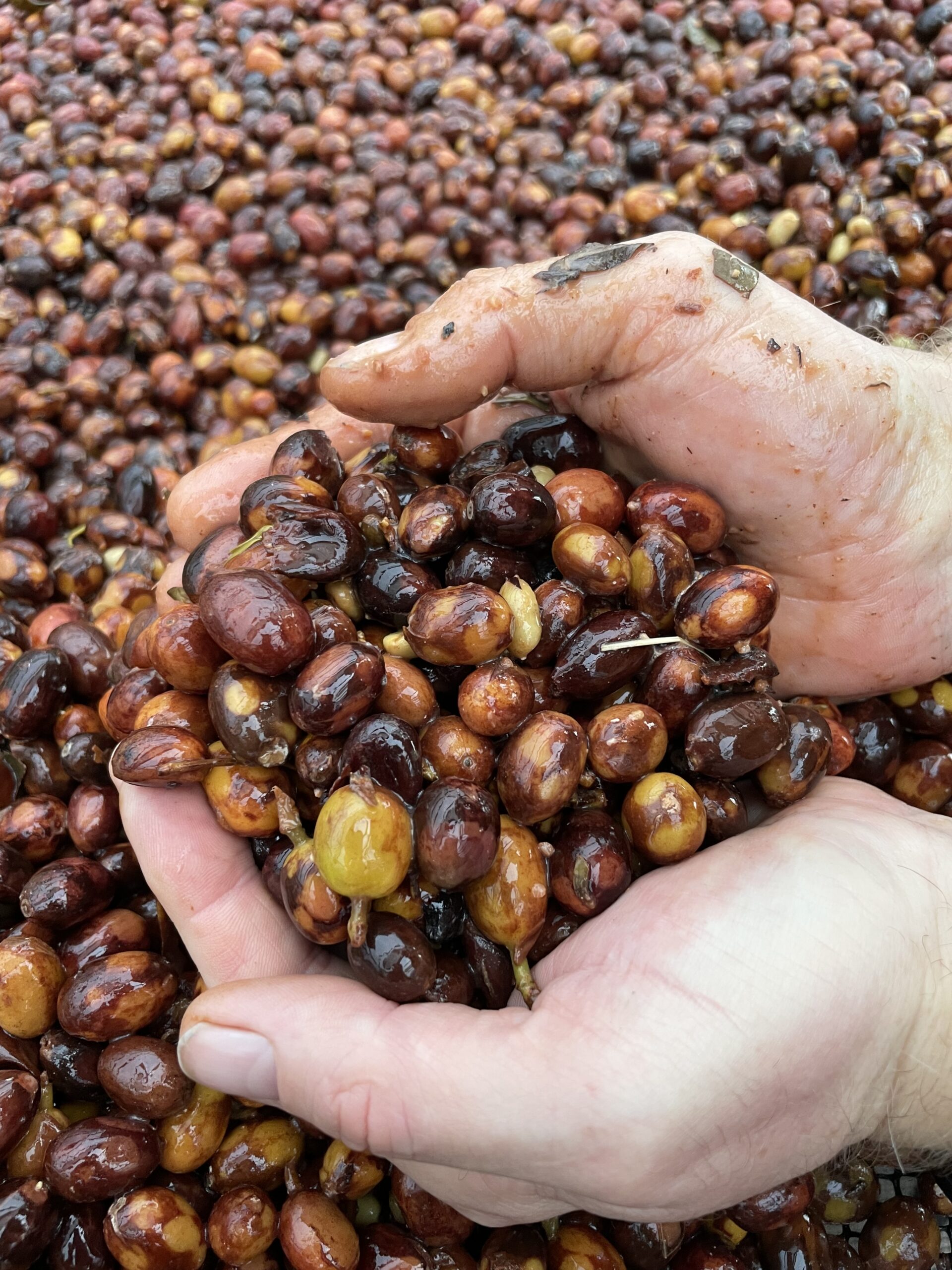

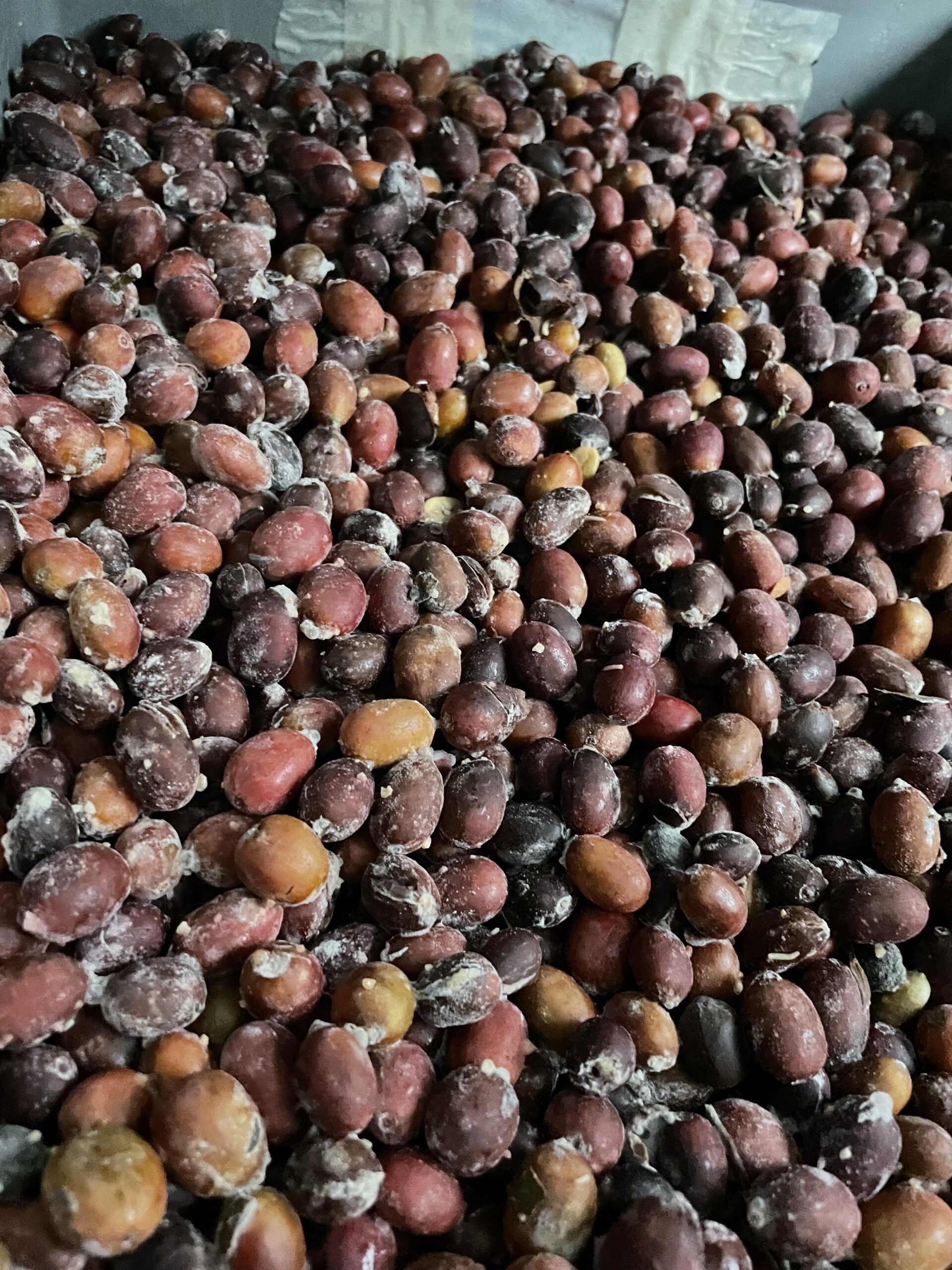

What’s all the talk about Koji?






During our recent trip to Colombia, a distinct highlight was visiting the farm that pioneered the use of Koji mould in the fermentation process of specialty coffee production. The use of Koji and its effect on coffee flavour, has sparked significant interest and conversation in the world of coffee. At Zest, flavour exploration is our passion, so we were excited to actually work on the farm to produce our own five Koji lots which are now in stock in our roastery in Australia. And, it was our pleasure to share the exotic flavours of Koji was hundreds of coffee enthusiasts at MICE 2022.
WHAT IS KOJI?
Koji is a fungus, A. Oryzae, which shares 99.5% of its genetic material with Aspergillus flavus. In a method used for generations in Japan and China, the mould grows on steamed rice producing aromas described as grapefruit and mango and pulling starches out of the grain via the enzyme amylase and producing amino acids.
In coffee, Koji serves as a processing agent, sacrificing polysaccharides and complex starches. This makes them available for secondary fermentation by other microbes, and for enzymatic processes within the coffee itself, while also producing glutamates that improve cup structure and mouthfeel. The fermentation usually takes 12 to 16 hours. For the effects of Koji to be detectable, the conditions must be just right. The cherry must be cleaned and heavily inoculated, and temperature and humidity controlled to ensure mould growth.
The result is a delicious coffee produced in a new and reproducible way with less effort and cost. Koji produces a coffee that takes everything we like about classically processed coffees and elevates flavours to the maximum. This process requires no special equipment or training and can be applied on any farm, anywhere in the world.
ABOUT EL VERGEL
Second generation coffee producers, brothers Elias and Shady Bayter, have gained world renown as producers of exotic coffees especially since their experimentation with Koji mould which has drawn international attention and accolades.
“We want to be able to create a better culture of coffee through good processing methods, which are then showcased by roasters with the same focus on quality, at the same time, we want to become pioneers in the coffee industry by having an impact not only in our coffees but also with all the other coffee growers,” says Elias. “You’ll find a combination of traditional production methods and an impressive amount of modern experimentation.”
THE FARM
Located in the beautiful Departamente of Tolima spanning across the mountain ranges in Colombia, the farm is divided into small plots where unique altitudes and micro-climates influence the way the coffee is treated. El Vergel is experimenting with a broad range of exotic varietals of coffee trees. Each and every green coffee bean is single-origin, hand-picked, and carefully inspected by one of El Vergel’s tenured pickers. “We go through great lengths to only produce the finest yields from our crops for coffee roasters around the world.”
SOCIAL PROJECTS
In 2020, El Vergel, together with friends of Breck Coffee in Colorado, bought materials and refurbished the local school on the trail Piedra Grande. And in 2021, Elias and Shady invited more than 40 producers from Palocabildo to a knowledge-sharing collaboration, and gave them the tools and knowledge to produce natural coffee. The result of this training and generous donation was an increase of 2 points in the cup in coffees produced. Furthermore, they
connected their coffee with customers in Europe and which resulted in these producers getting more than double the price there were previously obtaining.
ENVIRONMENTAL PROJECTS
The team at El Vergel believe that creating high-quality products comes with great responsibility. “Our dedication to sustainability does not just extend to the final product but also to our farm, our community, and our earth. We go to great lengths to recycle our products and to reuse them throughout the farm.”
WATER CONSERVATION
One of the most overlooked sustainability factors is water. Water is not only used for watering the plants on the farm but also for washing the coffee. Tons of water can be used over the course of a harvest and can cause damage to the local topography washing away the landscape. Through proper recycling techniques we have been able to drastically minimize the amount of water used and conserve the water consumption in our surrounding area by 40%. This keeps us from draining our springs and create a surplus of drinking water for the whole community to benefit from.
A key project is the reforestation of the farm and partners’ farms. Previously avocado were grown which resulted in a lot of damage to the soil. Now the brothers are planting native trees all around the farm to give nutrients naturally to the soil, and encouraging their neighbouring partners to do the same by providing them with the plants. Funds for this project was raised by selling t-shirts in USA where 100% of the earnings were destined for this project.
TASTE KOJI NOW
Zest has an array of exotic Koji lots in stock right now in limited quantities. Shop these micro-lots on the website looking for that magic word… Koji. Enjoy!